ROBERT WILLIAMS BUCHANAN (1841 - 1901)
|
ROBERT WILLIAMS BUCHANAN (1841 - 1901) |
|
|
|
|
|
|
|
|
{Ballad Stories of the Affections. From the Scandinavian 1866}
68
I’LL sing to ye a song, Sir Morten loved fair Adelaide, So full of wrath were one and all, Sir Morten’s father drove him forth And young Herr Morten dwelt afar 69 So sore the young Sir Morten yearned It was the young Sir Morten hied Ah! bitter, bitter was the tale Unto his father dear he spake, ‘O dry thine eyes, my son, my son, ‘Unto a bonnier, richer May ‘Sweeter to me my own true-love, ‘And what care I for rich green land? ‘And what care I for kinsmen, Then whispered with his brother dear ‘Go, deck thyself in grave-clothes white, |
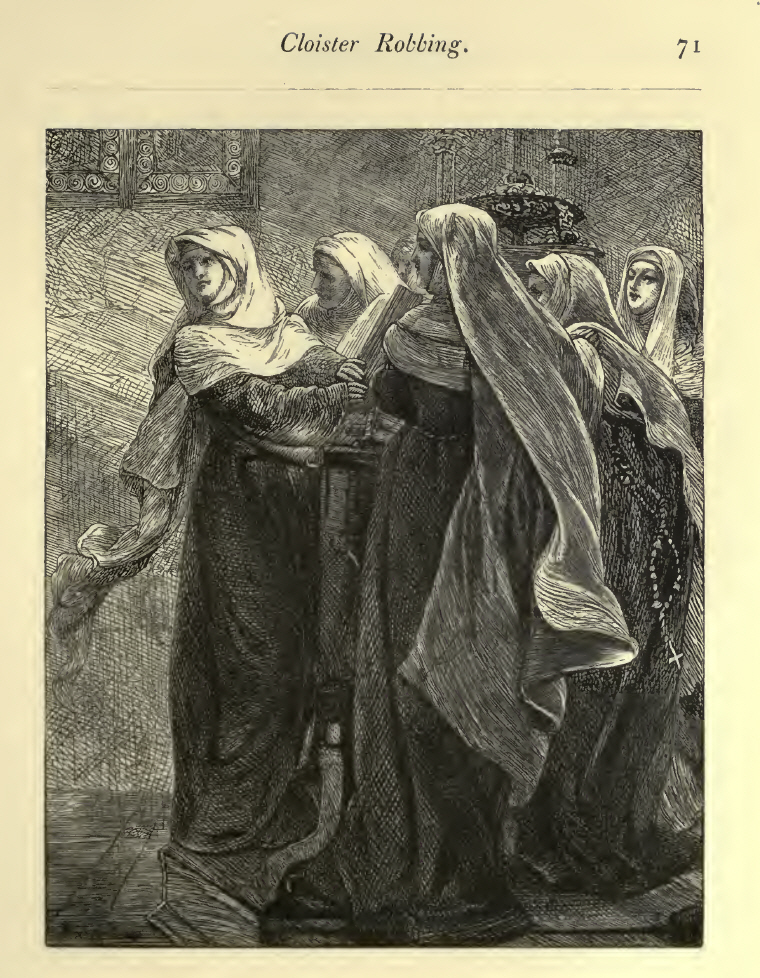 |
|
He decked himself in grave-clothes white, ‘Hail unto ye, O holy maids, All silent sat the holy maids, Then cried the sweet maid Adelaide, ‘Yea, here, in holy cloister-kirk, ‘I was a little child when first ‘His cruel father drove him off It was Sir Nilans bent his head, 73 ‘Never shall I forget my woe! Sorely she wept, Maid Adelaide, She crept unto Sir Morten’s bier, She lighted up the wax lights two, ‘Nine winters, while thou wert away, And bitterly wept Adelaide, 74 Oh, up he stood, and gazed again ‘O hearken, hearken, my own true-love, ‘Black are the horses that await Softly Sir Morten led her forth All silent stood the cloister maids, All silent stood the holy maids, 75 Honour to young Sir Morten Dove! Honour to young Sir Morten Dove,
76
I. MAID AGNES musing sat alone Watching the thin white foam, that broke And he was clad unto the waist The merman’s spear a boat-mast was, |
|||||||
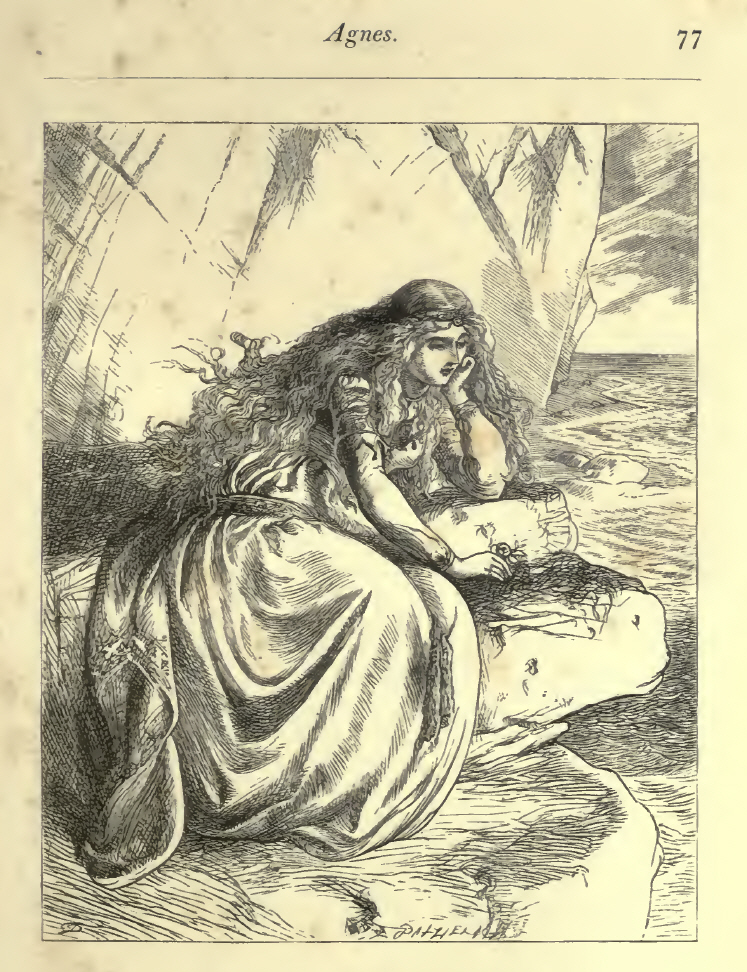 |
|||||||
|
His hair upon his shoulders fell, ‘And tell to me, sweet merman, 78 ‘O hearken, sweetest Agnes, ‘Far underneath the deep, deep sea, ‘And seven hundred handmaids wait, ‘Like mother-of-pearl the sea-sledge gleams, ‘And all along the green, green deeps Fair Agnes smiled, and stretched her arms, 79
II. Eight happy years fair Agnes dwelt She sat beneath the tall sea-plants, Unto her gentle lord she stept, ‘Then hearken, sweet wife Agnes, A thousand times ‘Good night’ she said 80 And, old and young, the children wept Now Agnes sees the sun again, Among the folk she used to know, The kirk bells chime, and into kirk The silver chalice to her lips She tried to pray, and could not pray, 81 When smoke and mist rose from the sea, Then folded she her thin, thin hands, She sank among the meadow grass, The small birds sang upon the bough, All in the twilight, when the sun |
|||||||
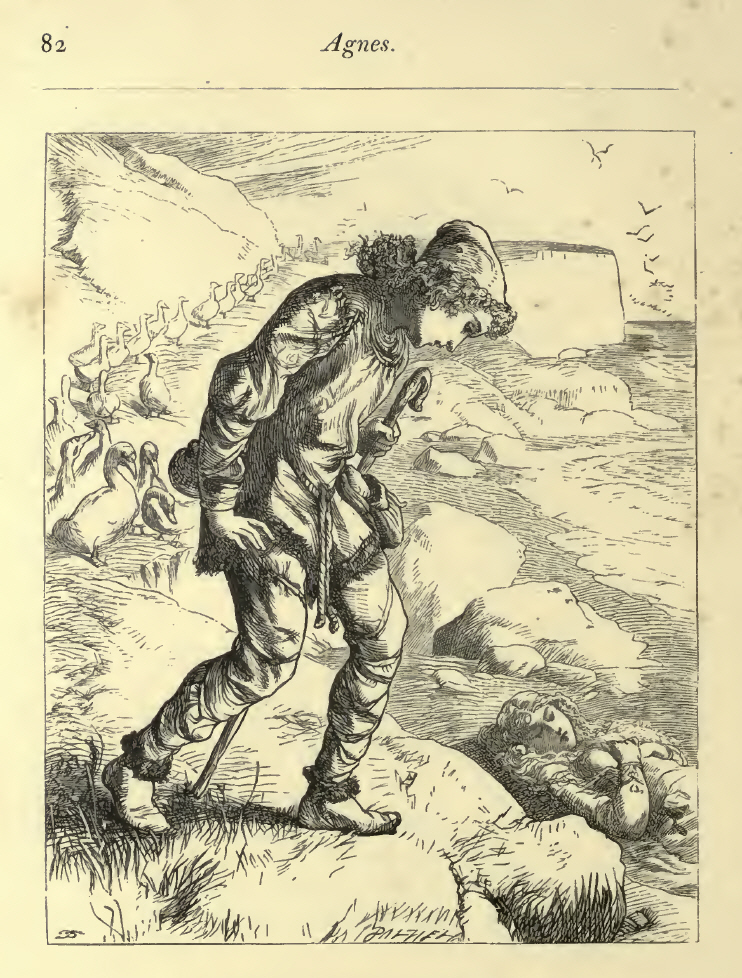 |
|||||||
|
The waves creep up across the strand, Three days she stayed beneath the sea, 83 And, sweetly decked by tender hands, The little herd-boy drove his geese He dug a grave behind a stone, Each morning and each evening,
84
SIR TONNE forth from Alsö fares, Herr Tonne in the rose grove rides, Herr Tonne in the rose grove rides, With golden harp in hand, she lies ‘Sit down, sit down, my maidens small, 85 Upon her harp of gold she struck, The wild, wild fowl upon the spray The meadow flowered, the greenwood bloomed, The meadow flowered, the greenwood bloomed— ‘Hail unto thee, O dwarf’s daughter! ‘Hail unto thee, O dwarf’s daughter! 86 ‘Hearken, Sir Tonne, hearken, ‘My father sits in the mountain, ‘My mother sits in the mountain, ‘Ere the Dwarf King shall marry thee, Answered the weird dwarf’s daughter, ‘Haste, haste away, Herr Tonne! 87 It was her dear, dear mother, Out came her dear, dear mother, ‘Better, better thy linen sew ‘The King of Dwarfs hath feasted thee It was the weird dwarf’s daughter, Upon a stool, within the cave, 88 The dwarf’s wife opened her mystic book, ‘Now have I freed thee from the rune, ‘And I for love and right goodwill, ‘For I was reared of Christian folk, ‘She bears a crown in Iceland, ‘Her daughter once was stolen away, 89 ‘She dares not from her window peep, ‘Save that old King, her gentle eyes ‘This maiden sits in Upsal, ‘The old King’s brother hath a son, ‘And I will give thee saddle and horse, ‘And I will give thee clothes of price, 90 ‘And I will give thee a golden scroll, Out spake Alfhild, the dwarf’s daughter, ‘And thou shalt never miss the way, ‘And thou shalt safely come to land It was the dwarf’s wife, Thorelil, |
|||||||
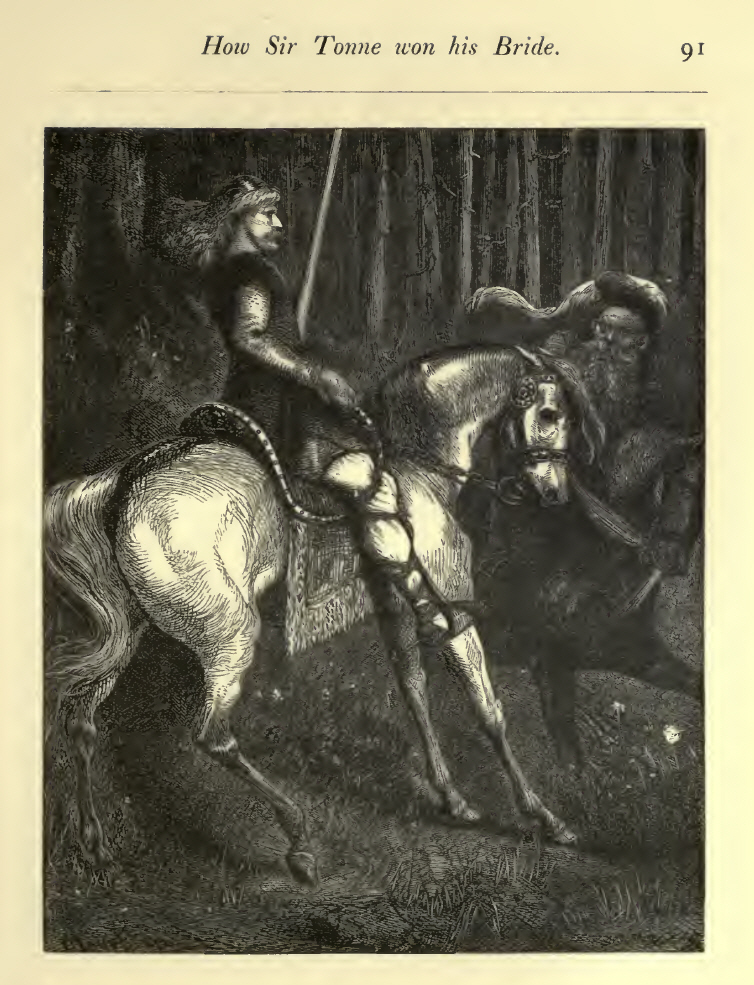 |
|||||||
|
Herr Tonne in the rose grove rode, ‘Well met, well met, Sir Tonne; 92 ‘I ride unto a distant place, ‘Ride on, ride on, and fare thee well— Herr Tonne swiftly rode along On every head a helmet bright, ‘Hail unto ye, O Swedish knights, Answered the slim Prince Allerod, 93 ‘But there in Upsal dwells a maid, The first joust they together rode, The second joust the warriors rode, Then fiercely strove those Swedish knights And up they picked their mantles blue, ‘A Jutish knight hath come to land, 94 ‘Eight warriors hath he overthrown, Then answered back the fierce old King, Out rode those angry Swedish knights, And skin of calf they still must wear, It was the angry Swedish knights |
|||||||
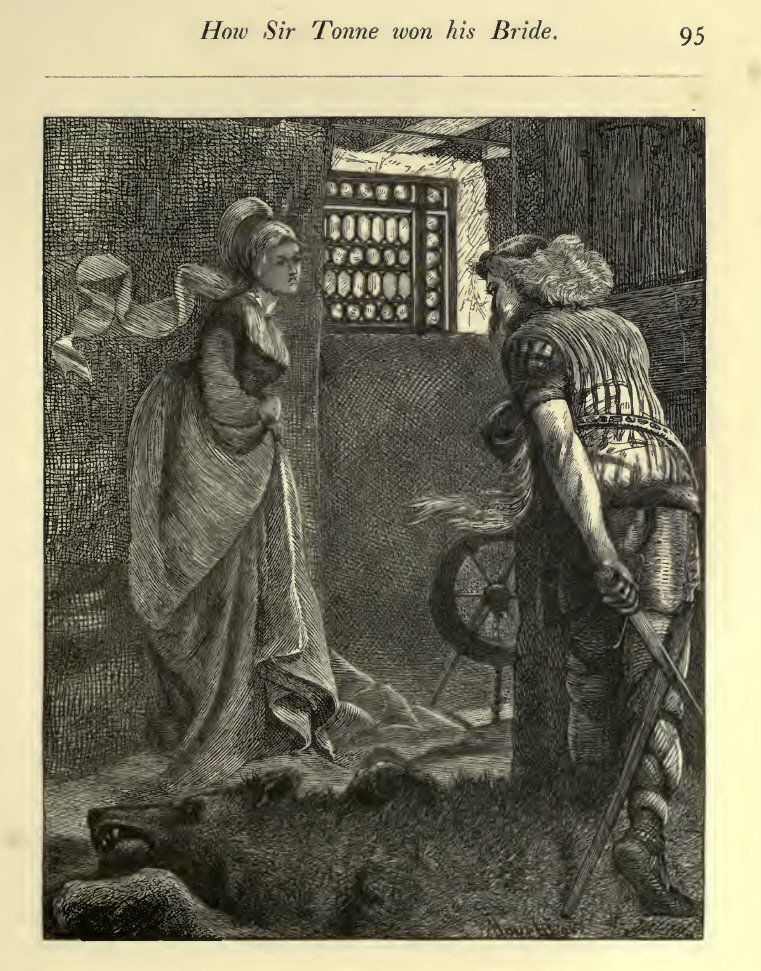 |
|
Herr Tonne still in Upsal rides He slew the bear that watched the door, 96 The Swedish courtiers silent were,— He hurled aside the Swedish knights, And there was joy in Iceland, Herr Tonne now in Iceland
97
IT was Sir Morten of Fogelsong, To kirk he gave the red, red gold, It was the young Sir Folmer Skot— ‘O hearken, young Sir Folmer Skot, ‘O hearken, dark Sir Morten; 98 ‘I ride not here to sue for gifts, ‘I ride not here for red, red gold, ‘O haste to Mettelil, my wife, ‘And if fair Mettelil, my wife, ‘Say that my chamber slippers lie |
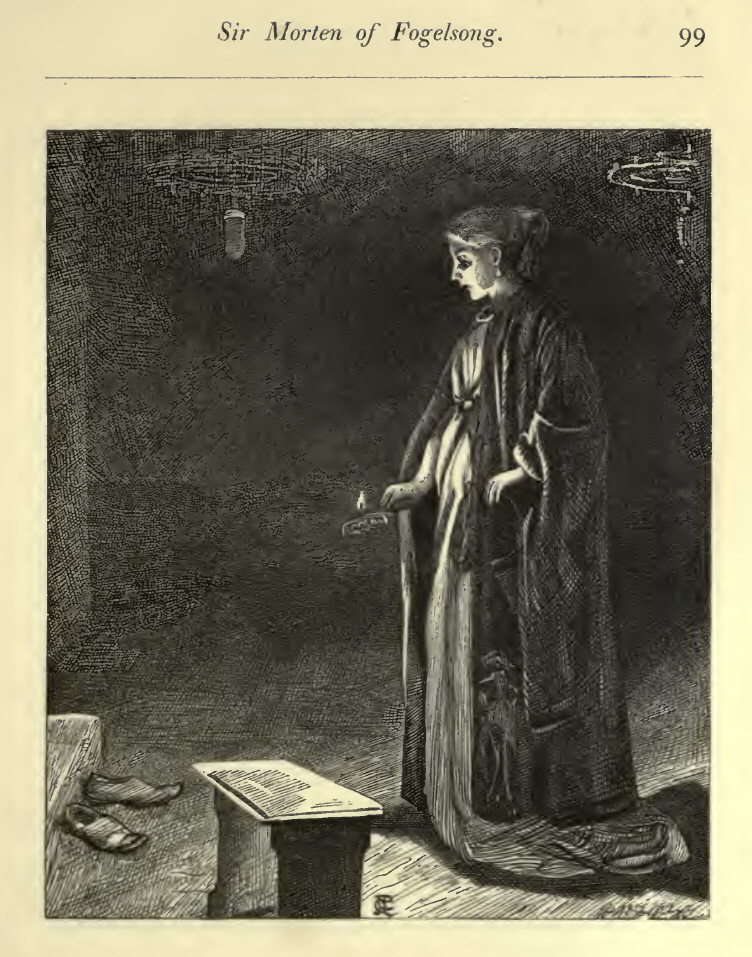 |
|
‘Ride back, ride back, Sir Morten, Black was Sir Morten’s horse, 100 But grace to fair Dame Mettelil!
’TWAS clear, cold, starry, silver night, |
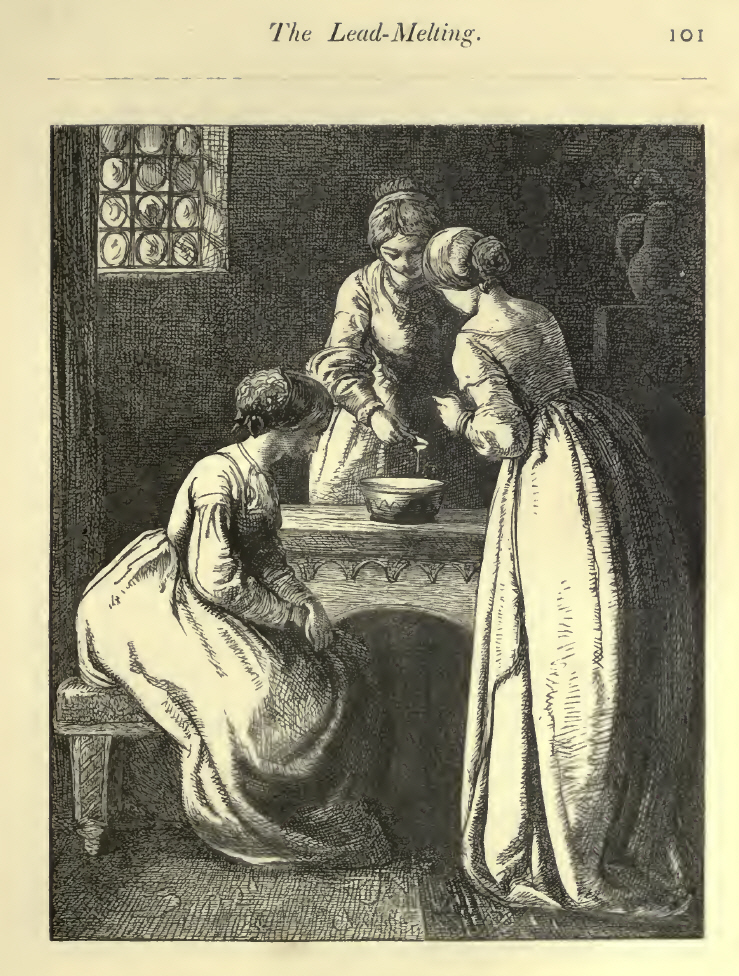 |
|
In the deep night, while all around The second sees a silver ship, And time went by,—one maiden got
[Notes: _____
Ballad Stories of the Affections continued or back to Ballad Stories of the Affections - Contents
|
|
|
|
|
|
|